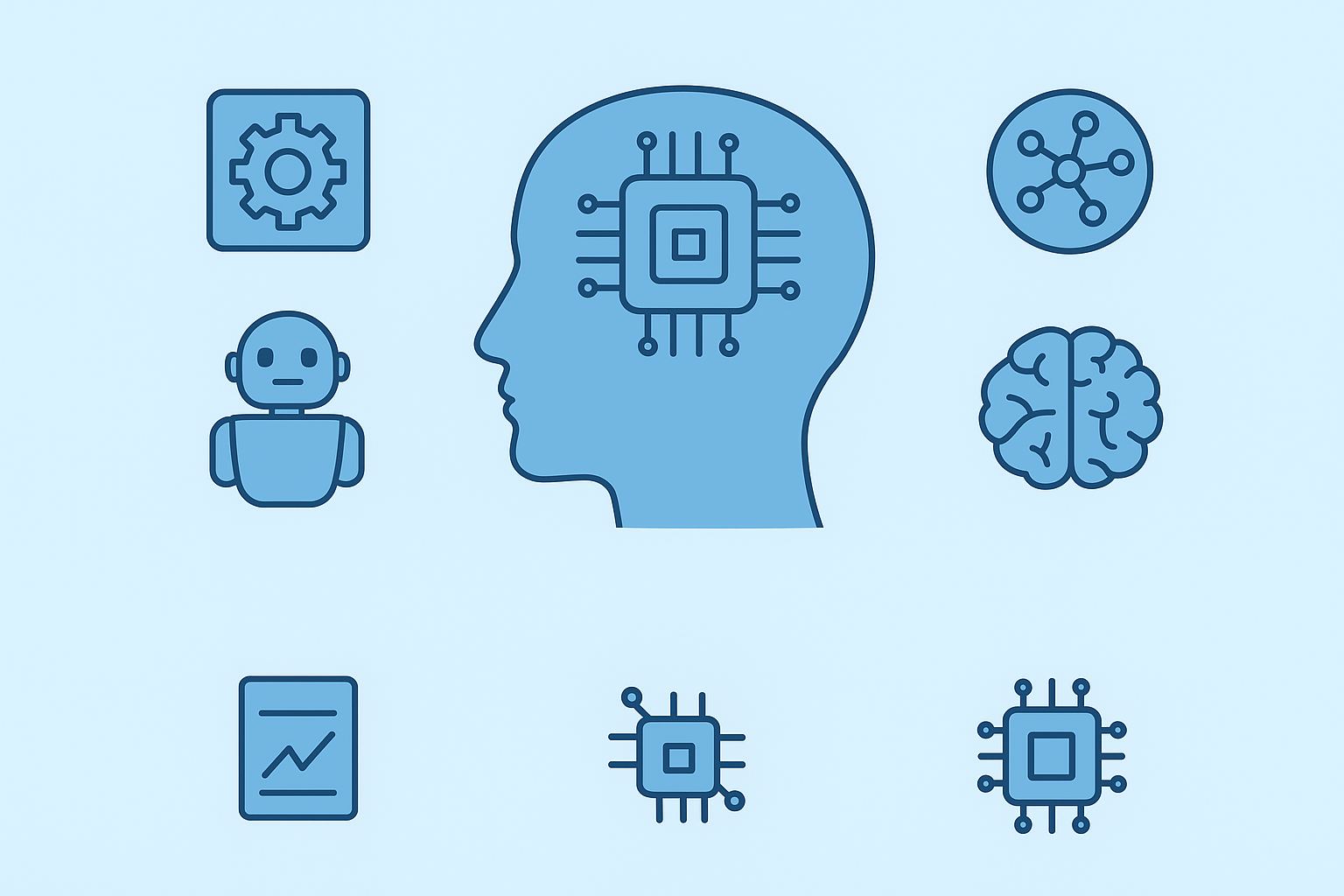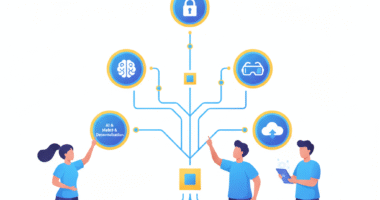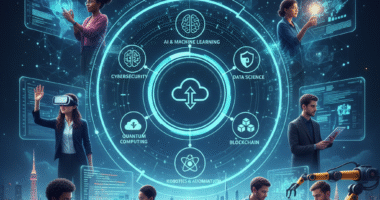Artificial Intelligence (AI) is transforming how we live, work, and interact with technology. From voice assistants like Siri and Alexa to advanced robotics and data analysis, AI plays a major role in modern innovation. This beginner’s guide to understanding artificial intelligence explains what AI is, how it works, and why it’s so important in today’s world.
What Is Artificial Intelligence?
Artificial Intelligence (AI) refers to the simulation of human intelligence in machines. These systems are programmed to think, learn, and make decisions much like humans do. AI enables computers to perform tasks that typically require human reasoning, such as recognizing speech, analyzing data, and solving problems.
Types of Artificial Intelligence
Understanding the different types of AI helps beginners grasp how varied and powerful AI technology can be.
1. Narrow AI
Also known as Weak AI, this type of AI is designed to perform a specific task. Examples include chatbots, recommendation systems, and voice assistants. Narrow AI powers most of the AI applications we use today.
2. General AI
General AI aims to perform any intellectual task that a human can do. It’s capable of reasoning, learning, and understanding across different domains. However, this type of AI remains theoretical and is still under development.
3. Super AI
Super Artificial Intelligence is a futuristic concept where machines surpass human intelligence. This level of AI could outperform humans in all areas, from creativity to problem-solving, though it raises ethical and safety concerns.
How Does Artificial Intelligence Work?
AI systems work by combining large amounts of data with intelligent algorithms. These algorithms allow machines to recognize patterns and make predictions. The process typically involves:
-
Data Collection – AI systems gather large datasets.
-
Machine Learning – Algorithms train models using this data.
-
Neural Networks – Layers of data processing mimic human brain structures.
-
Decision-Making – The AI system uses learned knowledge to make smart decisions.
Real-World Applications of AI
Artificial Intelligence is everywhere. Here are some common applications you encounter daily:
Healthcare
AI helps doctors diagnose diseases, predict patient outcomes, and personalize treatment plans.
Business and Marketing
AI analyzes consumer data, improves customer service with chatbots, and optimizes marketing strategies.
Transportation
Self-driving cars and smart traffic systems use AI to make travel safer and more efficient.
Education
AI-powered tools personalize learning experiences and assist teachers with administrative tasks.
Benefits and Challenges of Artificial Intelligence
Benefits
-
Increases efficiency and productivity.
-
Reduces human error.
-
Enhances decision-making through data analysis.
Challenges
-
Job displacement due to automation.
-
Ethical concerns around privacy and bias.
-
High costs of AI development and maintenance.
The Future of Artificial Intelligence
The future of AI promises smarter, more adaptive technologies. As AI continues to evolve, it will impact nearly every industry, improving life while raising important ethical and societal questions. Understanding artificial intelligence today prepares you for the innovations of tomorrow.
Final Thoughts
Artificial Intelligence is not just a trend — it’s a revolution. By learning the basics, you can better understand how AI works and how it’s shaping the world. Whether you’re a student, professional, or entrepreneur, now is the best time to explore the fascinating world of AI.








